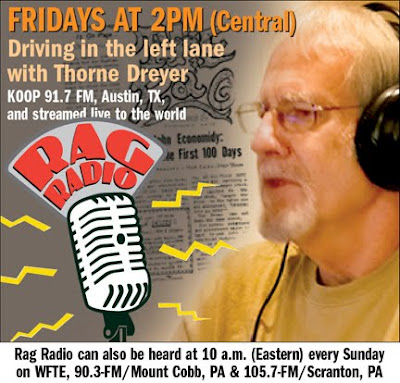Why Can't Humans Stop Fighting?
This is one of many of these types of articles across America today.
Postwar life for Iraq, Afghan vets is anything but normal
James Janega and Aamer Madhani
October 29, 2006 3:03 AM
CHICAGO - It's been more than three years since Martin Binion navigated minefields and sniper fire as he made his way to Baghdad with a combat assault team in the opening days of the Iraq war.
Now the former U.S. Army soldier is trying to make it through the Veterans Affairs system, and Binion, 33, is barely getting by. He has flirted with homelessness, been turned down for more than a dozen jobs, and is trying to be treated for post-traumatic stress disorder.
More than five years after the Sept. 11 terrorist attacks and two wars later, advocates fear too many young veterans share Binion's difficulty readjusting to life in America.
Hoping to end the pervasive problems faced by earlier generations of veterans in accessing services, the veterans support group Amvets opened a national symposium in Chicago to address issues facing young veterans. The goal is to present Congress with a new set of policy priorities after the November elections.
An online survey of 600 veterans unveiled by the group hinted at what those priorities would be. It found eight in 10 veterans felt more could be done to help troops leave the military and join the civilian workforce. Nearly four in 10 felt underemployed, and two-thirds had trouble accessing disability benefits in a veterans affairs system most agree is overwhelmed to the point that soldiers like Binion have fallen through the cracks.
''When you join the Army, they tell you that they got your back 'till the end,'' Binion said. ''From my experience, it's not been that way.''
[snip]
Binion is still haunted by much of what he encountered on the battlefield, including the horrific sight of dismembered bodies, the unbearable stench of dead bodies cooking in the desert sun, and the image of one Iraqi soldier who died while clutching a photo of his family.
The trauma from the experience, Binion said, has led to night sweats, nightmares, depression, a fear of crowds, uncontrollable anger and other behavioral changes that are telltale signs of post-traumatic stress disorder. He is seeing two Veterans Affairs counselors for the symptoms of post-traumatic stress disorder, he said.
When he came home from Iraq two years ago, he found that his infant daughter no longer recognized him and would push away from him when he tried to hold her. When he went to sleep, he sometimes had nightmares in which he dreamed he was under attack. On several occasions, he unknowingly struck his wife while having these nightmares. Binion's marriage ultimately fell apart as a result of these behavioral changes.
Read it here.







